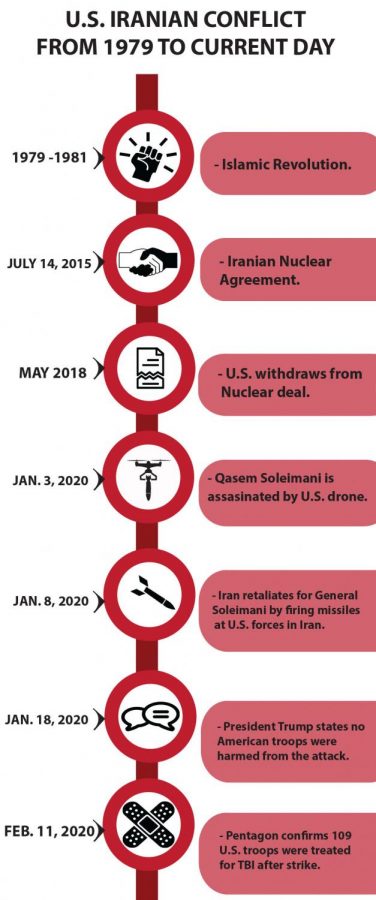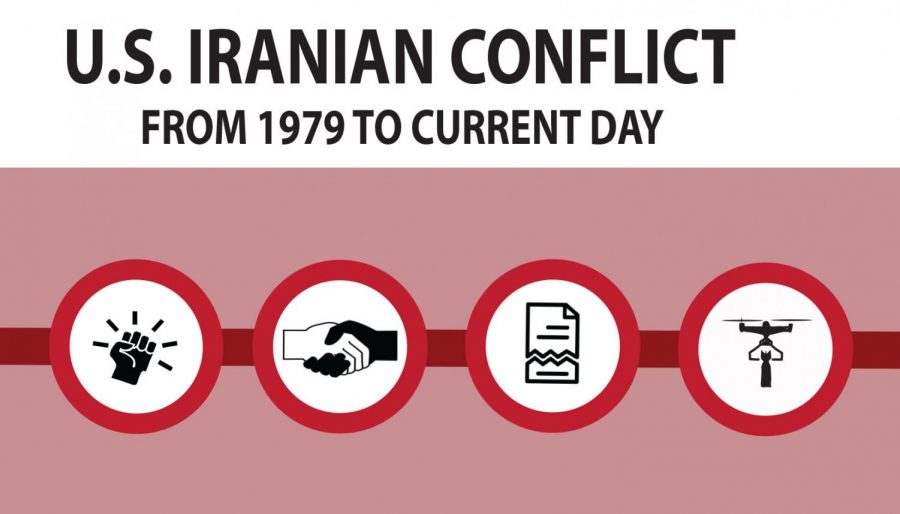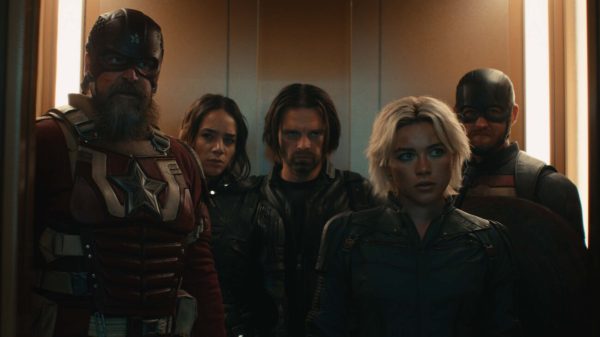World War III
EvCC Instructor Provides Insight on U.S. and Iranian Conflict
Simplified timeline of U.S. and Iranian conflict over the years.
Several people are confused by the recent events between Iran and America. Steven Horn, a political science instructor at EvCC, broke down the situation and to help everyone gain a better understanding.
On the third day of the new year, Trump approved the assassination of one of Iran’s top generals: Qassem Soleimani.
In a public statement, the President claimed “[The attack] was meant to stop a war, not start one.” However, there is no evidence that Soleimani was planning anything harmful towards the U.S. during that time.
In response, Iran fired more than a dozen ballistic missiles at two locations hosting American citizens in Iraq. Thankfully, no one was fatally injured. Otherwise, Horn believes that we would be in a situation even worse than the likes of the Iraqi War.

EvCC political science instructor Steven Horn helps explain the recent conflict between the U.S. and Iran.
“I think that when you assassinate someone, one of the top leaders, you are at war already,” he said. “But we would be in a real serious circumstance had Iran hit back or if they do hit back with a more consequential attack or response.” In other words, if Iran decides to go to war with us, it will be extremely life-altering.
According to Horn, the U.S. had a habit of intervening with Iran’s politics back in the 1970s. This resulted in higher tensions that eventually spiraled into an Anti-American movement.
In fact, many books and articles such as “Talking Terrorism” by Philip and Robert Herbst claim that the chant “Death to America” has been astoundingly popular since the Islamic revolution in 1979.
During that revolution, a group of Iranian college students held 52 American citizens hostage. This lasted from November 1979 until January 1981 and is now known as the attack of the embassy.
Luckily, things were starting to look up in 2015. The U.S., Iran, United Kingdom, Russia, France, China and Germany all signed the Iranian Nuclear Agreement.

A timeline of the U.S. and Iranian conflict over the years.
This document forced the Iranian government to give up a majority of their nuclear resources and allowed for close observation, protocols and rules from all other parties that signed. This required all associated countries to back off of Iran politically and cease involvement in their country’s matters.
According to Horn, the Trump administration pulled the U.S. from that deal in May 2018.
While the rest of the countries that signed are still trying to hold it together, Horn believes that “the problems that we’re seeing today are directly related to the ending of that deal by the Trump administration.”
Recently, many articles from 2002 have been resurfacing regarding the Millennial Challenge, popularly referred to as MC02, where military personnel enacted a possible war between the U.S. and Iran.
With a simulator and physical efforts, the U.S. lost many times. As Horn puts it, “the strategy that [the fake Iranian general] pursued was not expected by the U.S. military. Presumably they made some adjustments [so the U.S. could win], but we’re geared up to fight another military like our own. Not, necessarily, a more diffuse and diverse adversary like the Iranians.”
When asked if he believed in the possibility of a third world war with Iran, Horn claimed that everyone should be prepared for the possibility and if it does happen, it is likely Iran will use nuclear power.
In the event that a country such as Russia joins in, it would be considered a world war. However, if it were just between the U.S. and Iran, it would be considered a regional war.
For the time being, things seem to have cooled down and we are relatively safe. However, “there aren’t any good explanations for why Soleimani was assassinated. Even if there were attacks that were in the works, it’s not like they would stop just cause he’s gone. So the rationale doesn’t make sense to me,” Horn declared, “the fear that people have makes sense to me.”

What are you doing when you aren't at The Clipper?
When I'm not at school I can usually be found either reading a book, playing Skyrim or...

What interests you about journalism?
Journalism is important more than ever, living in a time where connection is so fast and things are constantly...








